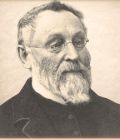COMMON NAME:
NIGHT BLOOMING CEREUS.
Symptoms
In diseases that call for the use of Cactus, there will always be found more or less derangement of the heart (Bt.).
Sanguineous congestions in persons of plethoric habit (Aconite, Belladonna, Ferr-P.), often resulting in haemorrhage A.).
HAEMORRHAGE: FROM NOSE, LUNGS, STOMACH, RECTUM OR BLADDER (Arnica, Crotalus horridus, Ferr- P., Millefolium, Acid nitricum, Phosphorus) (A.).
Constriction of oesophagus (Br.).
Fear of death (Aconite, Arsenicum, Calcarea, Cimic., Gelsemium, Lac-C., Acid nitricum, Phosphorus, Platina) (A.).
Believes the disease incurable (Arsenicum) (A.).
Melancholic, taciturn, sad and ill-hundred (Br.).
Angina pectoris (Aconite, Arsenicum, Lachesis, Lat-M., Spigelia, Veratrum) (Br.).
Pain in the apex of the heart, shooting down the left arm (Br.).
Adapted to hypertrophy of the heart; palpitation of the heat; rheumatism of the heart; and acute and chronic carditis with rheumatism (Bt.).
Constriction: of throat, chest, heart, bladder, rectum, uterus and vagina; often caused or brought on by the slightest contact (Belladonna) (A.).
FEELING AS THOUGH AS IRON HAND WAS AROUND THE HEART, PREVENTING ITS NORMAL MOTION (Bt.).
Oppression of the chest, as from a great weight (Arsenicum, Bryonia, Phosphorus) (A.).
Palpitation of the heart in debilitated patients; worse when lying on the left side, when walking, and at night, with melancholy (Bt.).
Sensation of a cord tightly tied around lower part of chest, marking attachment of diaphragm (A.).
Acute rheumatism of the diaphragm (F.).
Heart feels as if clasped and unclasped rapidly by an iron hand; as if bound; “had no room to beat” (A.).
Chronic bronchitis, with profuse rattling of mucus in the lungs (Ant-T., Carb- V., Hepar, Lycopodium, Nat-S.) (Bt.).
Haemoptysis, with cardiac affections (Lachesis, Naja, Phosphorus) (D.).
Difficulty of breathing (Apis., Arsenicum, Bryonia, Calcarea, Digitalis, Ferr-P., Gelsemium, Hepar, Ipecac., Kali carb., Lachesis, Mosch., Nux vomica, Opium) (Bt.).
Arterial pulsation in the scrobiculus (Bt.).
THE WHOLE BODY FEELS AS IF CAGED, EACH WIRE BEING TWISTED TIGHTER AND TIGHTER (A.).
Rheumatism of all joints, beginning in upper extremities (beginning in lower extremities-Ledum) (N.).
Right-sided prosopalgia; constricting pains: returns at the same hour daily (Cedr.) (Br.).
Headache; pressing like a heavy weight not he vertex; during climacteric; congestive; periodic; right-sided; severe, throbbing, pulsating pain (A.).
Feels as if head were compressed in a vise (Br.).
Profuse nose-bleed with organic heart-disease (N.).
Menstrual flow causes while lying down (Bovista, Causticum) (A.).
Palpitation at approach of menses (A.).
Menses too early, dark, pitch-like (Cocc., Kali-N., Magnesia carb. (Br.).
Periodical attacks of suffocation, with fainting, cold perspiration on face and loss of pulse (N.).
OEdema of hands and feet (Apis, Ars,. Aurum, Digitalis, Lachesis, Lycopodium, Natrum muriaticum, Phosphorus, Pulsatilla, Rhus toxicodendron, Sepia, Sulphur) (Br.)
Quotidian intermittent fever (C.).
Fever paroxysm returns at 11 A.M. and 11 P.M. (A.).
Chilliness an chattering of the teeth not relieved by covering (R.).
Coldness predominates (Camph., Kali-l., Veratrum (C.).
Burning heat with shortness of breath (R.)
Scorching heat at night with headache following a chill and terminating in perspiration (R.).
Constant irritation in urethra (Apis., Cantharis, Merc-C.) (C.).
Urines reddish, turbid and straw-coloured (Lycopodium, Sepia, Terebintha) (C.).
Haematuria: urination prevented by clots. (C.).
AGGRAVATION:
From slight contact : when lying down; when walking; lying on the lest side; at 11 A.M. and 11 P.M.; and going upstairs.
AMELIORATION:
In the open air; when sitting; and from rest.
RELATIONSHIP:
Compare : Aconite, Arsenicum, Belladonna, Conv., Digitalis, Gelsemium, Kalm., Lachesis, Naja, Natrum muriaticum, Phosphorus, Spigelia, and Tabacum
ANTIDOTES : Aconite, Camph. and China

